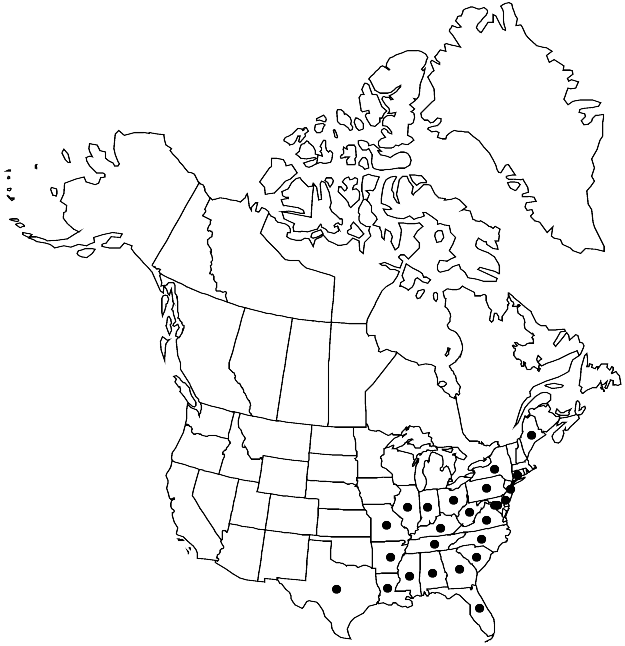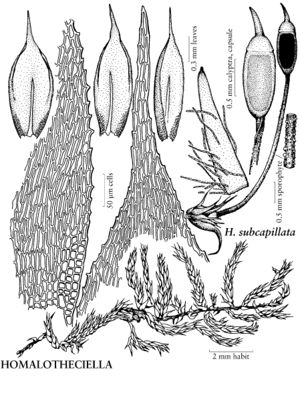Difference between revisions of "Homalotheciella subcapillata"
in H. G. A. Engler and K. Prantl, Nat. Pflanzenfam. 232/233[I,3]: 1133. 1908.
FNA>Volume Importer |
imported>Volume Importer |
||
| (6 intermediate revisions by 2 users not shown) | |||
| Line 1: | Line 1: | ||
{{Treatment/ID | {{Treatment/ID | ||
|accepted_name=Homalotheciella subcapillata | |accepted_name=Homalotheciella subcapillata | ||
| − | |accepted_authority=(Hedwig) Brotherus | + | |accepted_authority=(Hedwig) Brotherus |
|publications={{Treatment/Publication | |publications={{Treatment/Publication | ||
|title=in H. G. A. Engler and K. Prantl, Nat. Pflanzenfam. | |title=in H. G. A. Engler and K. Prantl, Nat. Pflanzenfam. | ||
| Line 12: | Line 12: | ||
}}{{Treatment/ID/Special_status | }}{{Treatment/ID/Special_status | ||
|code=F | |code=F | ||
| − | |label= | + | |label=Illustrated |
}} | }} | ||
| − | |basionyms={{Treatment/ID/ | + | |basionyms={{Treatment/ID/Basionym |
|name=Pterigynandrum subcapillatum | |name=Pterigynandrum subcapillatum | ||
|authority=Hedwig | |authority=Hedwig | ||
| + | |rank=species | ||
| + | |publication_title=Sp. Musc. Frond., | ||
| + | |publication_place=83, plate 16, figs. 7 – 12. 1801 | ||
}} | }} | ||
|synonyms={{Treatment/ID/Synonym | |synonyms={{Treatment/ID/Synonym | ||
|name=Burnettia fabrofolia | |name=Burnettia fabrofolia | ||
|authority=Grout | |authority=Grout | ||
| − | }}{{Treatment/ID/Synonym | + | |rank=species |
| + | }} {{Treatment/ID/Synonym | ||
|name=Homalotheciella fabrofolia | |name=Homalotheciella fabrofolia | ||
|authority=(Grout) Brotherus | |authority=(Grout) Brotherus | ||
| − | }}{{Treatment/ID/Synonym | + | |rank=species |
| + | }} {{Treatment/ID/Synonym | ||
|name=Homalothecium subcapillatum | |name=Homalothecium subcapillatum | ||
|authority=(Hedwig) Sullivant | |authority=(Hedwig) Sullivant | ||
| − | }}{{Treatment/ID/Synonym | + | |rank=species |
| + | }} {{Treatment/ID/Synonym | ||
|name=Pterogonium decumbens | |name=Pterogonium decumbens | ||
|authority=Schwägrichen | |authority=Schwägrichen | ||
| − | }}{{Treatment/ID/Synonym | + | |rank=species |
| + | }} {{Treatment/ID/Synonym | ||
|name=Pterigynandrum brachycladon | |name=Pterigynandrum brachycladon | ||
|authority=P. Beauvois ex Bridel | |authority=P. Beauvois ex Bridel | ||
| + | |rank=species | ||
}} | }} | ||
|hierarchy=Brachytheciaceae;Homalotheciella;Homalotheciella subcapillata | |hierarchy=Brachytheciaceae;Homalotheciella;Homalotheciella subcapillata | ||
| Line 48: | Line 56: | ||
|elevation=low to high elevations (0-2000 m) | |elevation=low to high elevations (0-2000 m) | ||
|distribution=Ala.;Ark.;Conn.;Del.;D.C.;Fla.;Ga.;Ill.;Ind.;Ky.;La.;Maine;Md.;Miss.;Mo.;N.J.;N.Y.;N.C.;Ohio;Pa.;S.C.;Tenn.;Tex.;Va.;W.Va. | |distribution=Ala.;Ark.;Conn.;Del.;D.C.;Fla.;Ga.;Ill.;Ind.;Ky.;La.;Maine;Md.;Miss.;Mo.;N.J.;N.Y.;N.C.;Ohio;Pa.;S.C.;Tenn.;Tex.;Va.;W.Va. | ||
| − | |discussion=<p>Homalotheciella subcapillata is distinguished as small, glossy, creeping, pinnate plants bearing leaves with long, slender tips crowded on short branches. The species is easy to recognize under the microscope by its leaves with denticulate margins, weak costa, and quadrate alar cells. The delicately haired calyptra also is distinctive among Brachytheciaceae, as most species of the family have naked calyptrae. Pylaisiella selwynii (Hypnaceae) can be very similar to H. subcapillata, but differs in its more regularly curved branches and ecostate entire-margined leaves.</p> | + | |discussion=<p><i>Homalotheciella subcapillata</i> is distinguished as small, glossy, creeping, pinnate plants bearing leaves with long, slender tips crowded on short branches. The species is easy to recognize under the microscope by its leaves with denticulate margins, weak costa, and quadrate alar cells. The delicately haired calyptra also is distinctive among Brachytheciaceae, as most species of the family have naked calyptrae. Pylaisiella selwynii (Hypnaceae) can be very similar to <i>H. subcapillata</i>, but differs in its more regularly curved branches and ecostate entire-margined leaves.</p> |
|tables= | |tables= | ||
|references= | |references= | ||
| Line 57: | Line 65: | ||
-->{{#Taxon: | -->{{#Taxon: | ||
name=Homalotheciella subcapillata | name=Homalotheciella subcapillata | ||
| − | + | |authority=(Hedwig) Brotherus | |
| − | |authority=(Hedwig) Brotherus | ||
|rank=species | |rank=species | ||
|parent rank=genus | |parent rank=genus | ||
| Line 71: | Line 78: | ||
|publication title=in H. G. A. Engler and K. Prantl, Nat. Pflanzenfam. | |publication title=in H. G. A. Engler and K. Prantl, Nat. Pflanzenfam. | ||
|publication year=1908 | |publication year=1908 | ||
| − | |special status=Endemic; | + | |special status=Endemic;Illustrated |
| − | |source xml=https:// | + | |source xml=https://bitbucket.org/aafc-mbb/fna-data-curation/src/2e0870ddd59836b60bcf96646a41e87ea5a5943a/coarse_grained_fna_xml/V28/V28_684.xml |
|genus=Homalotheciella | |genus=Homalotheciella | ||
|species=Homalotheciella subcapillata | |species=Homalotheciella subcapillata | ||
Latest revision as of 21:37, 5 November 2020
Plants glossy. Stems 0.2 cm, branches short, ascending-erect, straight or often curved. Leaves 0.7–1.3 × 0.3–0.5 mm; margins plane; alar cells in 2–5 vertical rows; laminal cells 40–60 × 5 µm, smooth. Perigonia gemmiform, axillary on stem. Seta 0.5–1 cm, straight. Capsule exserted, 1–1.5 mm, smooth or wrinkled-plicate when dry; exothecial cells oblong-rectangular; stomata few, proximal on capsule; peristome pale; exostome teeth pale yellow-orange, 300 µm, external surface finely cross striolate, internal surface transversely ridged, fimbriate-bordered, papillose at apices. Calyptra 2 mm.
Phenology: Capsules mature Sep–Feb.
Habitat: Trunks of soft-barked trees, logs, roots, stumps, rock, mesic to wet forests
Elevation: low to high elevations (0-2000 m)
Distribution

Ala., Ark., Conn., Del., D.C., Fla., Ga., Ill., Ind., Ky., La., Maine, Md., Miss., Mo., N.J., N.Y., N.C., Ohio, Pa., S.C., Tenn., Tex., Va., W.Va.
Discussion
Homalotheciella subcapillata is distinguished as small, glossy, creeping, pinnate plants bearing leaves with long, slender tips crowded on short branches. The species is easy to recognize under the microscope by its leaves with denticulate margins, weak costa, and quadrate alar cells. The delicately haired calyptra also is distinctive among Brachytheciaceae, as most species of the family have naked calyptrae. Pylaisiella selwynii (Hypnaceae) can be very similar to H. subcapillata, but differs in its more regularly curved branches and ecostate entire-margined leaves.
Selected References
None.
